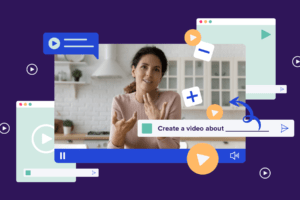Introduction
In a world where technology ceaselessly stretches the boundaries of creative expression, an epoch-making innovation has surfaced that is reshaping the landscape of the music industry – AI-generated music. As the strides of artificial intelligence algorithms surge forward, they have reached a remarkable juncture where they can compose melodies, harmonies, and even entire musical compositions that enthrall the very essence of human emotion. In this piece, we embark on a journey to unveil the enchantment concealed within AI-generated music and the implications it holds for the prospective realm of artistic creation.
The Birth of AI-Generated Music
The odyssey of AI-generated music found its inception through the infusion of deep learning methodologies into the realm of musical composition. Taking inspiration from the human brain, neural networks underwent training on extensive repositories of musical scores spanning diverse genres and eras. Through this process, these networks gradually absorbed the intricate tapestry of patterns, chord progressions, and melodic architectures that delineate distinct musical styles.

The Creative Process Unveiled
AI-generated music is not set to supplant human composers; instead, it stands as a collaborative partner, enhancing the creative voyage. Musicians and composers now possess the capacity to input precise parameters such as mood, tempo, and even instrumental preferences. They then witness as AI algorithms interlace these elements into a symphonic masterpiece. The culmination emerges as a seamless fusion of human creativity and machine precision, transcending the constraints that either entity might encounter individually.
Endless Possibilities
AI-generated music unlatches a portal to a cosmos brimming with boundless possibilities. Musicians can embark on explorations of novel genres that hitherto lay uncharted, as AI seamlessly navigates the diverse terrains of classical, jazz, electronic, and folk styles. Furthermore, it accelerates the composition process, furnishing musicians with a firm foundation upon which they can construct and refine their opuses.

The Ethical and Artistic Conundrum
As we venture deeper into the realm of AI-generated music, a series of questions unfurls regarding the role of technology within the domain of art. Some traditionalists posit that bona fide artistic expression solely emerges from human emotions and experiences. In contrast, others perceive AI as an instrument capable of amplifying and diversifying creative output. This ongoing discourse compels us to reimagine our comprehension of artistry in the digital epoch.
Beyond Imitation: AI as a Trailblazer
AI-generated music does not restrict itself to replicating existing styles; rather, it unfurls the potential for pioneering innovation. By amalgamating disparate genres, experimenting with unconventional time signatures, and introducing fresh harmonies, AI-generated music emerges as a catalyst for musical evolution. It prompts human composers to break free from conventional confines and engage in a partnership with machines to craft compositions that transcend established norms.

The Future of Collaborative Composition
Gazing forward, the future of AI-generated music manifests as a landscape of collaboration rather than competition. As AI algorithms perpetually refine, musicians and composers might embrace AI as a treasured collaborator on their creative sojourns. This collaboration could engender the emergence of entirely novel genres and artistic movements that intertwine human ingenuity with the prowess of machine intelligence.
Conclusion
In a world where technology incessantly reconfigures the essence of art, AI-generated music stands as a tribute to human inventiveness and creativity. It beckons us to reconsider the essence of composition, appreciation, and collaboration within the realm of music. As AI persists in refining its harmonious cadences, we stand on the threshold of a fresh era – a realm where humans and machines engage in a harmonious dance, crafting the cadence of limitless imagination.
FAQs about AI-Generated Music
1. Can AI-generated music genuinely evoke human emotions?
While AI-generated music originates from algorithms, it has shown remarkable capacity in stirring human emotions. Its ability to interpret intricate patterns and styles enables it to create music that resonates deeply with listeners.
2. Is AI-generated music solely limited to mimicking existing genres?
No, AI-generated music is not confined to imitation. It can fuse various genres, experiment with new elements, and challenge traditional norms, thus driving musical evolution and innovation.
3. How do musicians collaborate with AI in music composition?
Musicians input parameters like mood and tempo, allowing AI to contribute to the composition process. This collaboration results in a unique blend of human artistry and machine-generated precision.
4. What role does AI play in the creative process?
AI serves as a collaborator, enhancing the creative process for musicians and composers. It offers new ideas, speeds up composition, and introduces fresh elements that artists might not have considered.
5. Will AI-generated music replace human composers?
AI-generated music is not intended to replace human composers but to complement their work. It provides a new tool for artists to explore and expand their creative horizons.







